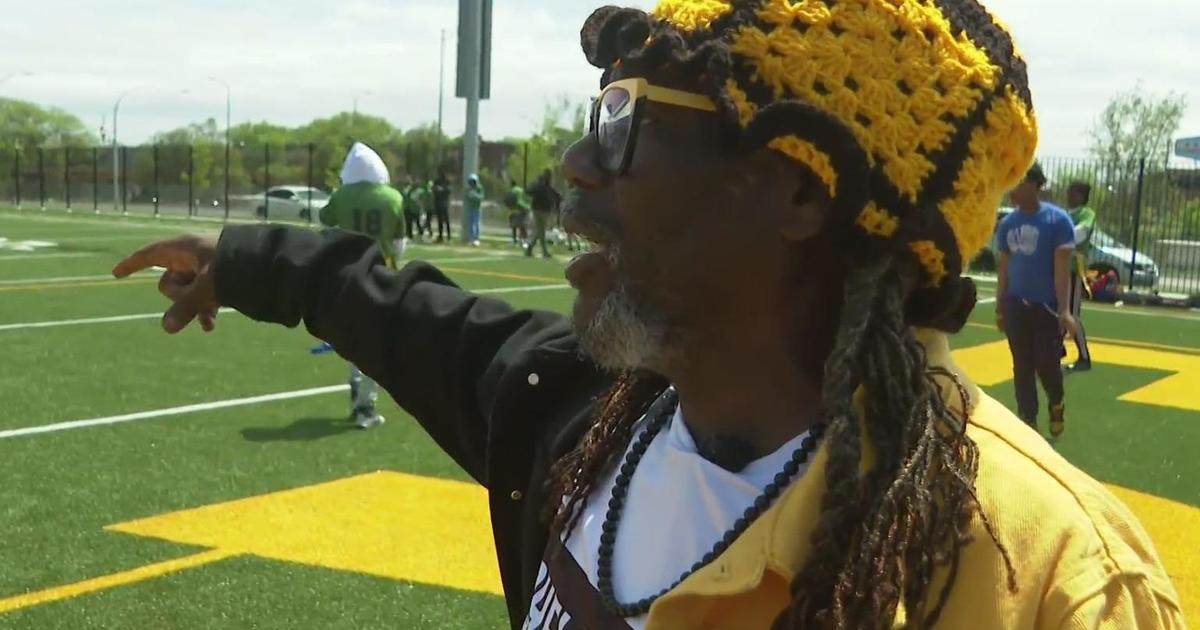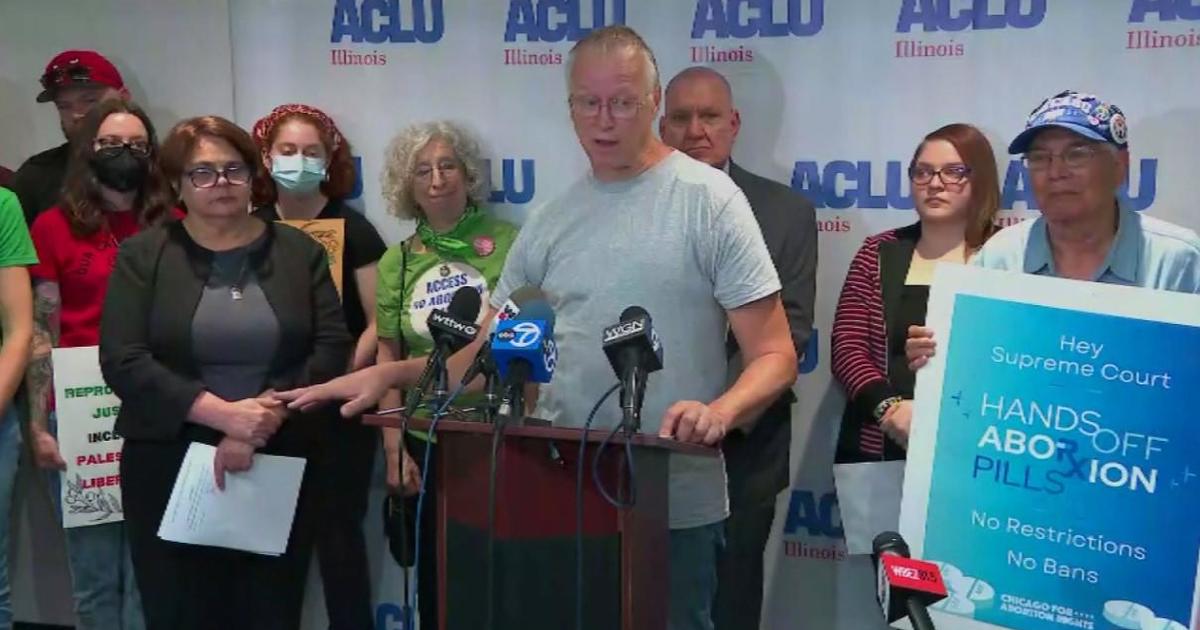Feds sue Cubs, claiming Wrigley Field renovations violate disability access requirements
CHICAGO (CBS) -- The federal government is taking the Chicago Cubs to court over the team's recent renovations at Wrigley Field, claiming the changes to the ballpark don't comply with the Americans with Disabilities Act (ADA).
According to a lawsuit filed Thursday in federal court by the U.S. Attorney's office in Chicago, the Cubs "failed to ensure that recent additions and alterations at Wrigley Field are readily accessible to and usable by individuals with disabilities."
Wrigley Field underwent significant renovations from 2014 through 2019, including new seats, expanded bleachers, a new outdoor concourse, new concessions, upgraded restrooms, new team clubhouses, and more.
The lawsuit claims the Cubs didn't provide wheelchair users with adequate sightlines compared to other guests, and didn't include wheelchair seating in new premium clubs and group seating areas. The feds say wheelchair seating in general admission areas is largely clustered in the last row of seating sections.
"Although this project significantly enhanced the gameday experience for many fans, particularly those able to take advantage of premium clubs and other luxury accommodations, the same cannot be said for fans with disabilities," the lawsuit states. "To the contrary, and throughout the 1060 Project, the Cubs removed the best wheelchair seating in the stadium, failed to incorporate wheelchair seating into new premium clubs and group seating areas, designed and constructed wheelchair seating in the last row of general admission areas that does not meet the requirements of the ADA Standards for Accessible Design, and failed to remove architectural barriers to access in unaltered portions of Wrigley Field where it was readily achievable to do so."
Cubs Lawsuit by Todd Feurer on Scribd
According to the lawsuit, wheelchair users can barely see any of the field when other fans stand up during exciting parts of the game.
The suit also points out that the batter's eye in center field, which is covered with a mesh tarp, gets abnormally hot in the summer, and has been the focus of complaints from wheelchair users. Longtime Cubs fan David Cerda is one of them.
"It's like watching the game on a dark television at home," Cerda said.
Cerda, who sued the Cubs in 2018, loved to sit in the right field bleachers before the renovations replaced those seats with a bar. He has been seeking in his lawsuit to force the Cubs to provide more accessible seating locations throughout the ballpark.
"It's very frustrating, when they spent all that money, and they should have improved the handicap seats instead of making them worse," he said.
Cerda guessed he's been to more than 100 Cubs games. He loves the team, but is frustrated with what he calls a lack of wheelchair accessible seating in the stadium. It's why he took the Cubs to court in a lawsuit that prompted the Justice Department investigation that led to Thursday's lawsuit from the feds.
"We should get the same view as everyone else," Cerda said. "I just hope there is more handicap seats that are equal people who don't use wheelchairs."
The lawsuit also notes flaws with concessions stands, restrooms, and other areas of the ballpark when it comes to access for the disabled.
Specifically, the lawsuit says sales and service counters at the stadium are too high; including ticket windows inside and outside the ballpark, sales and service counters on Gallagher Way, concession stations throughout the stadium, bar sales counters in the bleachers, several bars and food counters on the main concourse, and self-serve food and condiment counters throughout Wrigley Field.
In addition, the lawsuit points out several deficiencies in Wrigley Field restrooms; including paper towel dispensers mounted out of reach for people in wheelchairs, improperly mounted toilet paper dispensers, obstructed grab bars, baby changing stations that are out of reach, toilets and urinals mounted too high, and more.
The lawsuit further claims walkway openings and slopes throughout the stadium are not properly accessible; and shuttle services from Wrigley's parking lots are not accessible to all wheelchair users.
Cubs Lawsuit Details by Todd Feurer on Scribd
The lawsuit claims the Cubs had ample opportunity to meet their obligations under the ADA to improve wheelchair seating and other accessible elements while renovating Wrigley Field.
Robin Jones, director of the Great Lakes ADA Center, said accessibility for people with wheelchairs and other disabilities has been an issue for a long time at Wrigley Field.
"People with disabilities want the same experience as everyone else does," Jones said.
The feds are seeking a court order requiring the Cubs to fix the deficiencies described in the lawsuit, and to award compensatory damages for any injuries visitors to Wrigley Field might have suffered as a result of the failure to comply with the ADA.
A Cubs spokesman said the team is "disappointed" by the Justice Department's decision to file a lawsuit, and they "hope the matter can be resolved amicably."
"But we will defend Wrigley Field and our position it meets accessibility requirements for fans. The renovation of Wrigley Field greatly increased accessibility of the ballpark and was completed in accordance with applicable law and historic preservation standards consistent with the ballpark's designation as a National and City of Chicago landmark. Since the Department of Justice's initiation of its review in November 2019, we have fully cooperated with every inquiry and made several offers to voluntarily further enhance accessible features of the ballpark, including seating, restrooms, concessions and other key accessibility elements, in response to the Department's inquiry."
"Wrigley Field is now more accessible than ever in its 108-year history, demonstrated by increasing accessible seating options by more than 50 percent on and across more levels and in more locations. Wrigley Field has 11 more elevators than it did prior to the start of the renovation, more accessible restroom facilities, assistive listening technology for fans with hearing impairments, enhanced audio speakers and sound systems throughout the ballpark, and upgraded ticketing and online systems for purchase of seating, including accessible seating. The Friendly Confines today is more welcoming than ever to fans with accessibility needs."



